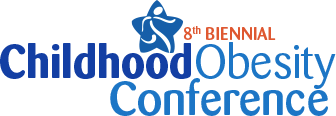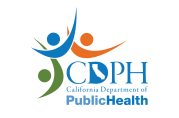Call for Session Proposals
The Call for Session Proposals deadline has passed.
Overview
The 8th Biennial Childhood Obesity Conference (COC) invites persons and organizations engaged in researching, developing, implementing and evaluating policy and environmental strategies to reduce childhood obesity to submit proposals for consideration for inclusion in the 8th Biennial COC program.
Sessions will be 75 or 90 minutes in length and proposal submissions will be required to: 1) select the most appropriate themed track; 2) include at least one of the conference priorities 3) select a level of evidence 4) include a diverse panel of speakers.
All accepted proposals/speakers are responsible for the full registration fee and travel costs to present at the Conference.
Conference Goals:
- Bring together diverse stakeholders to share knowledge, leverage partnerships and identify collective solutions to increase access to healthy foods and increase opportunities for children and their families to be physically active.
- Share and discuss emerging research, best practices, community-based efforts and effective policy strategies that promote and sustain healthy eating and physical activity practices.
- Elevate evidence and practice-based strategies that focus on reducing inequities in high-risk, low income communities.
- Using a collective impact approach, discover new cross-sector collaborations and strengthen existing partnerships to effectively and efficiently combat the socio-ecological factors that contribute to overweight/obesity in children and adolescents.
- Recognize opportunities to leverage State and Federal legislation to further policies and programs that aim to reduce overweight/obesity in children and adolescents (e.g. Child Nutrition and WIC Reauthorization Act, Farm Bill, Affordable Care Act, Covered California etc.).
Conference Priorities:
- Evidence and practice based programs that address health inequities, reach low-income communities (both in urban and rural areas) and are culturally appropriate
- Evidence and practice based programs that utilize multiple partners to achieve desired results, leverage resources and incorporate the principles of collective impact
- Policy, system and environmental change approaches; “health in all policy” approaches
- Presence of local, state and national speakers and programs highlighted
- Balance of community-based/grassroots programming and rigorous research/evidence based programs that contribute to the existing research base to reduce childhood obesity rates in CA and the US
- Balance of nutrition and physical activity model programming
- Highlight and call-out opportunities to leverage State and Federal legislation that aim to reduce overweight/obesity in children and adolescents (e.g. Child Nutrition and WIC Reauthorization Act, Farm Bill, Affordable Care Act, Covered California etc.)
- Support and promote civic engagement (youth, parent/caretakers, families, policymakers)
- Showcase emerging obesity prevention topics/strategies and trends (e.g. community safety/violence prevention programs, climate change and its effects on our food system, healthy food finance etc.)
- Provide multiple opportunities for sharing and networking (e.g. roundtables, poster sessions, facilitated Q&A sessions with keynote speakers, receptions/special networking opportunities etc.)
- Provide a fun and safe shared learning environment that allows for an exchange of best practices that can be replicated/tailored throughout CA and the US
Track Descriptions:
Basic and Applied Research
The Basic and Applied Research Track will present emerging research and best practices and strategies that promote and sustain healthy eating and physical activity to help reverse the childhood obesity epidemic, with a focus on populations at greatest risk. Priority topic areas in these sessions may include (but are not limited to):
- Evidence-based strategies for policy and practice to promote healthy lifestyle choices
- Cutting edge methodologies for obesity prevention evaluation (e.g. use of technology for survey administration)
- Innovative methodologies for assessing Collective Impact of current and new partnerships
- Dynamic research on health behaviors -- from theories to frameworks
Built Environment, Land Use and Transportation
The Built Environment, Land Use and Transportation Track will provide relevant, readily-applicable information on the relationship between childhood obesity and physical environments. Speakers will examine environmental change and policy efforts to support healthy eating and active living through the built environment. Sessions will address how community design impacts children's opportunities for daily physical activity and access to healthy food and beverage options. With an emphasis on lower socioeconomic communities, speakers will identify promising strategies and action steps to strengthen and accelerate efforts to create more healthy community environments where children live, play, and learn. Priority topic areas in these sessions may include (but are not limited to):
- Building cross-sector partnerships to design healthy communities that aim to increase healthy eating and active living opportunities (e.g. partnering with schools to encourage active living and health eating, partnering with community groups and facilities, including apartments, churches, parks to promote innovative programs or policies for active living and healthy eating, displaying public-private partnerships and exhibiting a multi-sectorial approach in implementing policies for active living and healthy eating)
- Health In All Policies approaches that impact childhood obesity (e.g. encouraging new and different opportunities for physical activity through law and policy, encouraging new and different opportunities for healthy eating through law and policy, Successful examples of using research in policy change, showcasing policies and specific languages written in general plan updates and health elements which improve the built environment)
- Research methods and new applications for trusted evidence-based approaches
- Innovative new strategies to impact childhood obesity rates (e.g. innovative urban design strategies to increase physical activity, youth lead initiatives, how walking, biking, and rolling can reduce childhood obesity, Health Impact Assessment as a Tool to counter Childhood Obesity, preventing violence to promote active living and healthy eating, successful examples of using research in policy or built environment change, programs working with community residents and youth in conducting walk audits and presenting at local council meetings)
Community Nutrition and Physical Activity
The Community Nutrition and Physical Activity Track will provide current, in-depth information on a broad range of activities designed to increase access to healthy food and physical activity opportunities in communities. Sessions will explore progress in communities focused on environmental, policy, and organizational practice strategies in low-income, culturally diverse urban and rural areas. Speakers will share success stories of resident-based, multi-sector partnerships at local and statewide levels; describe community-wide advocacy and engagement models; and provide examples of evidenced-based, replicable strategies. Priority topic areas in these sessions may include (but are not limited to):
- Collective Impact – Community interventions and approaches utilizing diverse cross-sector partnerships at the national//state/local levels that address health equity/health disparities, nutrition, and physical activity efforts using a common agenda, strategies, and indicators of success
- Youth/community-based participatory research
- Efforts in low-income housing
- Community health workers/Promotores
- Schools as hubs of community health
- National nutrition/physical Activity efforts (e.g., YMCA of the USA, Boys and Girls Clubs of America, National Association of Parks and Recreation)
- Youth engagement and mobilization
- Engagement of city and county government
- Faith based strategies
- Changing policies related but not limited to: increases access to and consumption fruits and vegetables; increased opportunities for physical activity; increased breastfeeding initiation, duration and exclusivity; increases access to and promotion of water; and decreased access to sugary beverages
- Farm to Fork initiatives
- Behavioral economic strategies (e.g. Research, best practices, and policies related to scaling behavioral economics at the community level regarding how market decisions are made and the mechanisms that drive public choice
- Life-Cycle Perspective Framework (e.g. Community approaches across the life span continuum, recognizing that maternal and pre-natal health influences childhood obesity, which influences adult health, and ultimately longevity. Particular emphasis on this framework within the context of identifying approaches that address health equity and social determinants of health in an integrated fashion)
Early Childhood Education
The Early Childhood Education Track will showcase the collective impact early childhood providers and specialists, community-based organizations, clinicians, public health practitioners, schools, and families have on the health of young children when we pursue a shared vision for success during this foundational stage of human development. The track features examples of how cross-sector coordination impacts policy, systems, environmental changes, practices, and nutrition education and physical activity interventions and resources. Interactive sessions will highlight evidence and practice-based strategies designed to promote optimal health for our nation’s culturally diverse children and will include preconception care, breastfeeding, nutrition and physical activity education, infant and child care environments, and parental and community engagement approaches. Priority topic areas in these sessions may include (but are not limited to):
- Pre-conception care
- Breastfeeding
- Nutrition and physical activity education
- infant and child care environments
- Parental and community engagement approaches
Food Systems
The Food Systems Track explores local and global agricultural production, processing, distribution, retailing, food service, consumption and waste. Together these components impact human nutrition and health, food security, the economy, and the environment both today and for future generations. Pushing the boundaries of conventional thinking, sessions will showcase multi-sectoral food system projects, policies and research that contribute to the prevention and reduction of childhood obesity and, ultimately, improve human health. Priority topic areas in these sessions may include (but are not limited to):
- Food system changes that improve human health, environmental sustainability, and economic development
- Innovative strategies that combat health disparities, food insecurity, food access disparities and environmental concerns
- Emerging multidisciplinary research on food system changes and their impacts
- Interdisciplinary thinking and non-traditional collaboration for a common purpose
- Influences of the political and economic contexts, including national, state, and local on the food system
- Farm to Fork initiatives/local procured food programs
Healthcare Approaches to Prevention
The Healthcare Approaches to Prevention Track will offer the latest clinical information on prevention and treatment guidelines for childhood obesity as well as emerging trends in the health care field, both inside the clinic walls and as partners in community prevention. Sessions will focus on the changing health care environment related to implementation of the Affordable Care Act and new opportunities to further develop and strengthen community health efforts that aim to prevent childhood obesity and its associated co-morbidities. The sessions will also address the diverse range of health care providers necessary to effectively provide access to care, treatment and health promotion/education for children and their families. Health equity issues will be prioritized as key factors in effective health care strategies, which include how to minimize disparities among racially and ethnically diverse low-income children. Speakers will present research, tools and resources for meeting individual health care needs related to childhood obesity and examine best practices for community health. Priority topic areas in these sessions may include (but are not limited to):
- The role of School Based Health Centers in meeting needs for health access, quality care and health promotion of children and their families in underserved communities
- Sustainable and effective health care delivery models using community health workers, promotores and other allied professionals as bridges between traditional service models and community-based prevention programs
- Successful shifts from treatment based efforts to prevention strategies for clinicians/healthcare workers to address childhood obesity (e.g. nutrition education, physical activity promotion, innovative incentive programs for clinicians, engaging other educators, policy makers, parents, and teachers in skill-based training that support long term healthy habits)
- Utilizing the principles of collective impact to broaden traditional healthcare approaches to prevention
- Innovative wellness programs designed for the healthcare workforce to enhance health promotion among their patients
- Making sense of prevention healthcare coverage in the era of health care reform
- Baby-Friendly Hospitals and Breastfeeding Friendly Clinic initiatives
- Healthy Hospital initiatives (changing food/beverage selections in hospital settings including vending machines and cafeterias)
- Screening systems during infancy for identifying those at highest risk for future obesity and metabolic disease (e.g. small for gestational age, infant of mother with gestational diabetes, family history of obesity, type 2 diabetes, early cardiovascular events; ethnicity)
- Innovative uses of Community Benefits to advance community-based prevention efforts
- Innovative roles of Community Centered Health Homes as the nexus of clinical and community health
Marketing to Kids
The Marketing to Kids Track will disclose marketing tactics used by the food and beverage industry to build brand preferences and promote unhealthy products to children and youth. Sessions will detail the prevalence of such marketing, its effects on children’s health, and the targeted marketing aimed at our youngest, most vulnerable populations. Presenters will share promising strategies and emerging policy opportunities at the national, state and local levels to address unhealthy food and beverage marketing and engage youth, parents and other key stakeholders in this important topic. Priority topic areas in these sessions may include (but are not limited to):
- Food and beverage marketing aimed at children and youth, including emerging marketing techniques and efforts to target vulnerable subpopulations
- Prevalence and impact of unhealthy food and beverage marketing
- Strategies for engaging parents and youth to take action against unhealthy food and beverage marketing
- Cross-sector partnerships to address marketing of unhealthy food and beverages to kids
- Promising practices to limit and/or prohibit unhealthy food and beverage marketing and advertising in schools and other youth-oriented settings
- Emerging legal issues related to policy efforts to limit or ban food and beverage marketing, including preemption
- Food labeling aimed at parents, children and/or youth
- Local, state and national policies to reduce unhealthy food and beverage marketing to children and youth
School and Expanded Learning (After School and Summer)
The School and Expanded Learning (After School and Summer) Track will highlight effective strategies that demonstrate how collective impact has improved the nutrition and physical activity environments for school-age children in diverse educational settings. This track will emphasize the implementation of the Healthy, Hunger-Free Kids Act of 2010, specifically, implementation of the School Breakfast and Lunch Meal Requirements, Local School Wellness Policy, Professional Standards, and At Risk Supper; innovative approaches to addressing obesity prevention in expanded learning environments; Connecting Common Core educational standards to nutrition/physical/health education; increasing physical activity opportunities before, during , and after school; and positively impacting student health and performance by focusing on the well-being of teachers and other staff. Priority topic areas in these sessions may include (but are not limited to):
- Implementing the Healthy, Hunger-Free Kids Act of 2010 (specifically implementing the School Breakfast and Lunch Meal Requirements, Local School Wellness Policy, Professional Standards, and At Risk Supper)
- Innovative approaches to addressing obesity prevention in expanded learning environments
- Connecting Common Core educational standards to nutrition/physical/health education
- Increasing physical activity opportunities before, during, and after school
- Positively impacting student health and performance by focusing on the well-being of teachers and other staff
Proposals including the following strategies should also be considered, as appropriate: - Unique funding opportunities
- Non-traditional partnerships
- Community schools/whole child approach
- Smarter Lunchrooms Movement
- Youth engagement
- All proposed sessions should include evaluation results
How to Submit a Session Proposal
Proposals must be submitted online. The online Call for Session Proposal system will be open beginning July 1, 2014 and will close on August 28, 2014 (extended from July 31, 2014).
- Click here to download the Call for Session Proposals Submittal Instructions (in PDF format).
- To submit a proposal online, click here. The first time you enter the system you will be asked to set up an account. This information will allow you to create, edit, submit, delete and track your proposal throughout the submission process.
- When your proposal is successfully submitted, you will receive a confirmation message at the email address provided in your profile.
- You can edit any of the information on your application until the August 28, 2014 submission deadline by clicking here to return to the online Call of Session Proposals system.
IMPORTANT NOTES: All presenters are required to register and pay the 8th Biennial Childhood Obesity Conference Fees. Registration must be complete by April 1, 2015 to ensure your place on the agenda.







